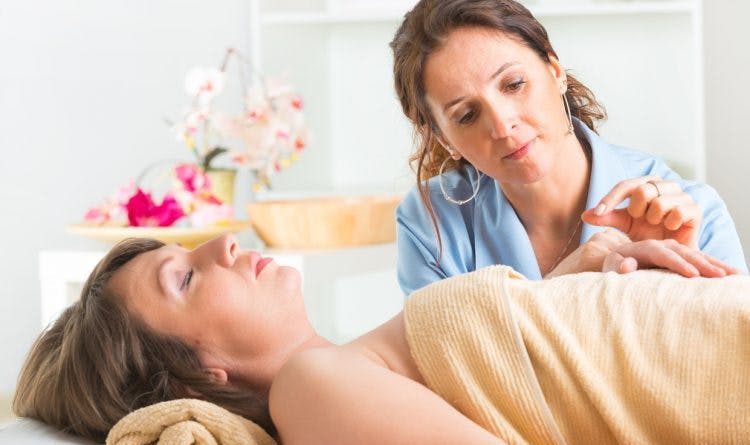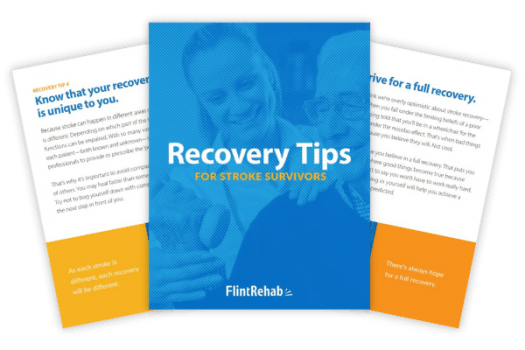
Acupuncture for Stroke Recovery: Understanding the Benefits and Risk Factors
shop-mgr2023-11-01T15:42:31+08:00Acupuncture for stroke recovery has grown more popular over the years. This is because acupuncture offers many benefits such as increasing muscle strength, reducing spasticity, and improving mobility after stroke – even for individuals with paralysis.
Studies have also shown that acupuncture is a relatively safe method to use after a stroke. However, while acupuncture is usually a low-risk treatment, there are some factors that should be considered to ensure it is safe for you.
This article will discuss both the risk and benefits of acupuncture after stroke, and how to maximize your chances of recovery.
What Is Acupuncture?
Acupuncture is a Traditional Chinese Medicine treatment that involves placing thin needles into acupoints (specific points) on the body. This is performed by a skilled acupuncturist who knows which acupoints correlate with different meridians, or pathways, on the body. This helps balance the flow of energy, or qi, in the body.
In the East, acupuncture is recognized as an effective treatment for digestive issues, insomnia, and other conditions. They believe that acupuncture helps reduce stress, improve emotions, and enhance overall wellbeing. In the West, acupuncture is particularly used for pain management, and is an attractive treatment option for survivors with post-stroke pain.
As you can see, acupuncture provides individuals with a wide range of benefits in general, but how exactly can it contribute to stroke recovery? Let’s take a look.
How Electroacupuncture Can Help Improve Mobility After Stroke
Over the years, more clinical studies have supported the theory that acupuncture is beneficial for stroke recovery – particularly electroacupuncture. Acupuncture usually involves using one needle at a time to treat each point, whereas electroacupuncture uses two needles to transfer electric current signals, or multiple pairs of needles that are simultaneously stimulated.
Electrical stimulation without acupuncture is widely accepted as an effective stroke rehabilitation method that can help individuals regain movement. With electrical stimulation, electrical currents are applied to the affected muscles via pads on to the skin to stimulate movement.
With electroacupuncture, the acupuncturist chooses specific points to insert the needles where they are stimulated with gentle electrical currents. They may choose to target the affected muscles or choose other meridians on the body. Although electrical stimulation and electroacupuncture are different, both treatments can help improve balance and mobility after stroke.
More Benefits of Acupuncture for Stroke Recovery
Stroke survivors may experience a variety of secondary effects including spasticity, difficulty swallowing, and/or imbalance. Fortunately, many of these effects can be properly managed using a combination of therapy and other natural methods such as acupuncture.
Acupuncture offers many benefits that can help survivors enhance their stroke recovery. While some researchers believe that the benefits of acupuncture for stroke recovery are derived from the placebo effect, there are a variety of clinical studies that prove otherwise.
Effects of a stroke that can improve with acupuncture after stroke include:
- Imbalance: Studies have shown that acupuncture can help improve balance and reduce the risk of falling in stroke patients.
- Paralysis: Many individuals may struggle with hemiplegia (paralysis on one side of the body) after a stroke. Researchers believe that acupuncture can be an effective treatment for post-stroke paralysis.
- Difficulty swallowing: When the area of the brain responsible for swallowing is damaged, it can result in dysphagia, or difficulty swallowing. This can make it challenging to eat and consume the foods necessary to promote recovery after stroke. Fortunately, studies have shown that acupuncture can help improve swallowing movements.
- Spasticity: A common secondary effect of stroke is spasticity, an uncontrolled stiffening of the muscles. Studies have found that combining electroacupuncture with therapy can help reduce spasticity.
- Muscle strength: Muscle weakness is another common effect of stroke that can affect movement and recovery. Luckily, studies have found that performing electroacupuncture 5 times a week for 2 weeks can help improve muscle strength, particularly in the legs.
Acupuncture can help survivors improve many of the effects from stroke. If you are eager to try acupuncture to enhance your stroke recovery, speak to your doctor first. They can ensure this is a safe and effective method for you.
Acupuncture for Stroke Risk Factors
Acupuncture is usually a minimally invasive procedure, and most survivors experience a pleasant calming sensation while receiving treatment. However, like many other natural methods for stroke recovery, there are some potential risks such as soreness or excess bleeding around the needle sites. In more severe cases, usually due to poor practice, it’s possible to get infections.
To prevent severe cases from occurring, it’s important to work with a trained and licensed acupuncturist. They know how to minimize the risks and potential side effects by inserting the needles in the appropriate acupoints. Licensed acupuncturists will also use sterile, single-use needles only to avoid infection and contamination.
Furthermore, licensed acupuncturists should provide extra care during your initial visit to discuss pre-existing medical conditions, including stroke. They can differentiate the type of stroke you had, such as ischemic stroke (caused by a blood clot) or hemorrhagic stroke (caused by a burst artery). It’s important to discuss this with your acupuncturist because some believe that acupuncture can open blood vessels and decrease clotting. While this can be helpful for individuals with a history of ischemic stroke, it can be potentially dangerous for those with a history of hemorrhagic stroke.
Therefore, before engaging in acupuncture for stroke, be sure to familiarize yourself with a licensed acupuncturist. One way to measure their experience is by viewing their credentials. For example, if their credentials have L.Ac, it means they’ve completed between 3,000-4,000+ hours of master level training. Lastly, don’t hesitate to ask your acupuncturist questions if you have any concerns about the potential risks or side effects after stroke.
Alternatives to Acupuncture for Stroke Recovery
While acupuncture undoubtedly provides many benefits, it is not the only method from Traditional Chinese Medicine that can help stroke recovery. There are other natural remedies for stroke recovery that you can try such as acupressure.
Acupressure is a non-invasive procedure that follows many of the same principles as acupuncture. Rather than using needles, it involves using the hands and fingers to apply pressure to certain points on the body. Studies have shown that acupressure could help increase upper extremity function, reduce depression, and enhance participation in daily activities.
Additionally, another alternative to acupuncture for stroke are Chinese herbs. Herbal supplements may help improve complications of a stroke such as pneumonia, headaches, fatigue, or depression. Chinese herbs can also increase energy levels, which can help boost your motivation to pursue rehabilitation.
However, there are some Chinese herbs that may be potentially dangerous for your condition. For example, Buchang Naoxinton is a blood-thinning herb that helps reduce clotting which could increase the risk for a second stroke for individuals with a history of hemorrhagic stroke. Always consult with your doctor and herbalist before adding any new supplements to your diet.
Acupuncture for Stroke Survivors
Acupuncture for stroke recovery is growing because of the benefits it provides. When combined with therapy, acupuncture can further help survivors improve mobility, increase muscle strength, and promote overall recovery. This is a particularly attractive treatment option for survivors who struggle with paralysis or spasticity after stroke.
While acupuncture is a relatively safe and minimally invasive treatment, there are still potential risk factors that individuals should be aware of such as excess bleeding. Fortunately, there are other alternatives to acupuncture for stroke recovery that you can try such as acupressure and Chinese herbal supplements. Be sure to consult with your doctor and find a licensed acupuncturist before trying acupuncture for stroke recovery.
We hope this article helped you understand the benefits of acupuncture for stroke recovery, and encouraged you to find the most effective natural remedies for you.
Keep It Going: Download Our Stroke Recovery Ebook for Free

Get our free stroke recovery ebook by signing up below! It contains 15 tips every stroke survivor and caregiver must know. You’ll also receive our weekly Monday newsletter that contains 5 articles on stroke recovery. We will never sell your email address, and we never spam. That we promise.